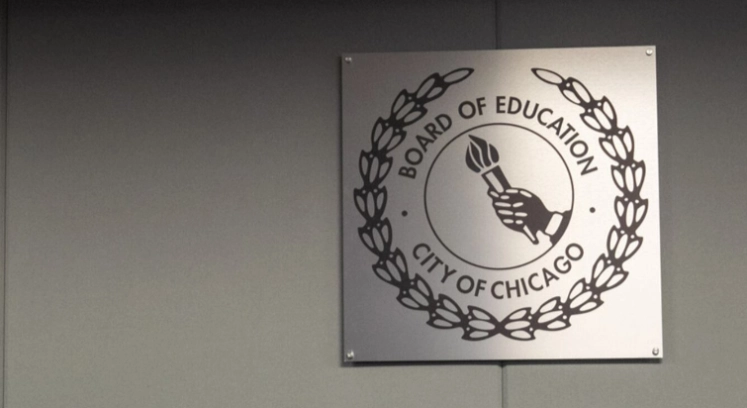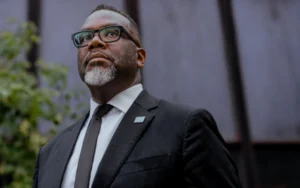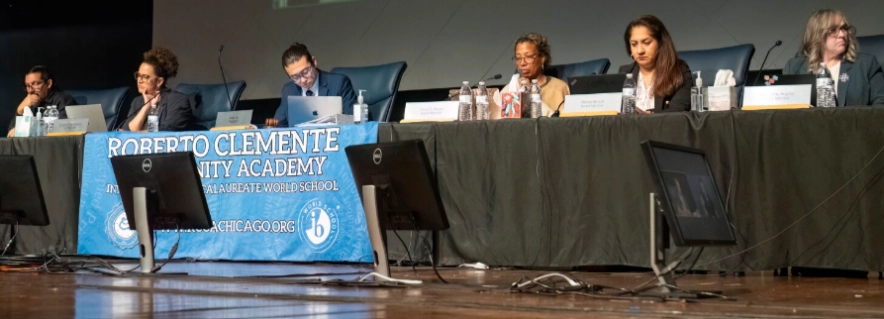Chicago School Board Resignation: A Crisis in Educati0n Governance
In a dramatic turn of events, the entire Chicago school board has resigned amidst escalating tensions with the Chicago Teachers Union (CTU). This unprecedented move has sent shockwaves through the educational landscape of the city, raising questions about governance, accountability, and the future of public education in Chicago.
The Context: Tensions with the Teachers Union
 The resignation comes in the wake of a protracted dispute between the school board and the CTU, which has been advocating for better working conditions, pay, and resources for teachers and students alike. The conflict has intensified over recent months, with union leaders accusing the board of failing to address critical issues affecting educators and students.
The resignation comes in the wake of a protracted dispute between the school board and the CTU, which has been advocating for better working conditions, pay, and resources for teachers and students alike. The conflict has intensified over recent months, with union leaders accusing the board of failing to address critical issues affecting educators and students.
The situation reached a boiling point when CTU members voted overwhelmingly in favour of a strike authorization. This vote signalled deep dissatisfaction among teachers regarding their working conditions and the lack of support from school administrators. The board’s decision to resign is seen by many as an acknowledgement of its inability to effectively manage these escalating tensions.
The Resignation: Implications for Governance
 The resignation of all seven members of the Chicago school board is unprecedented and raises significant concerns about governance in one of the largest school districts in the United States.
The resignation of all seven members of the Chicago school board is unprecedented and raises significant concerns about governance in one of the largest school districts in the United States.
Mayor Brandon Johnson, who appointed many of the board members, described the situation as “deeply alarming.” He emphasized that stable leadership is essential for navigating the challenges facing Chicago’s schools.
This mass resignation could lead to a leadership vacuum that may hinder efforts to resolve ongoing disputes with the CTU. Furthermore, it raises questions about who will step in to fill these critical roles and how quickly new appointments can be made.
Reactions from Stakeholders
The reactions to this crisis have been swift and varied. Parents, educators, and community leaders are expressing concern over what this means for students’ education. Many parents worry that continued instability in leadership will disrupt their children’s learning environment.
Union leaders have welcomed the resignations as a necessary step toward accountability. CTU President Stacy Davis Gates stated, “This is a moment for reflection and change.” She emphasized that teachers need strong advocates who will prioritize their needs and those of their students.
The Future of Education in Chicago
 As Chicago navigates this turbulent period, several key questions remain unanswered:
As Chicago navigates this turbulent period, several key questions remain unanswered:
- Who will lead next? The appointment of new board members will be crucial in shaping the district’s direction moving forward.
- How will negotiations with the CTU unfold? With tensions running high, it remains to be seen whether new leadership can effectively engage with union representatives to resolve.
- What impact will this have on students? As discussions continue regarding teacher pay and working conditions, it is essential to consider how these issues affect student learning outcomes.
Conclusion: A Critical Juncture
The resignation of the entire Chicago school board marks a critical juncture for education governance in the city. As stakeholders grapple with the implications of this unprecedented move,
there is an urgent need for effective leadership that prioritizes collaboration between educators and administrators. Moving forward, it is vital for all parties involved to work towards rebuilding trust and ensuring that students receive the quality education they deserve. The road ahead may be challenging, but it also presents an opportunity for meaningful change within Chicago’s educational system.
